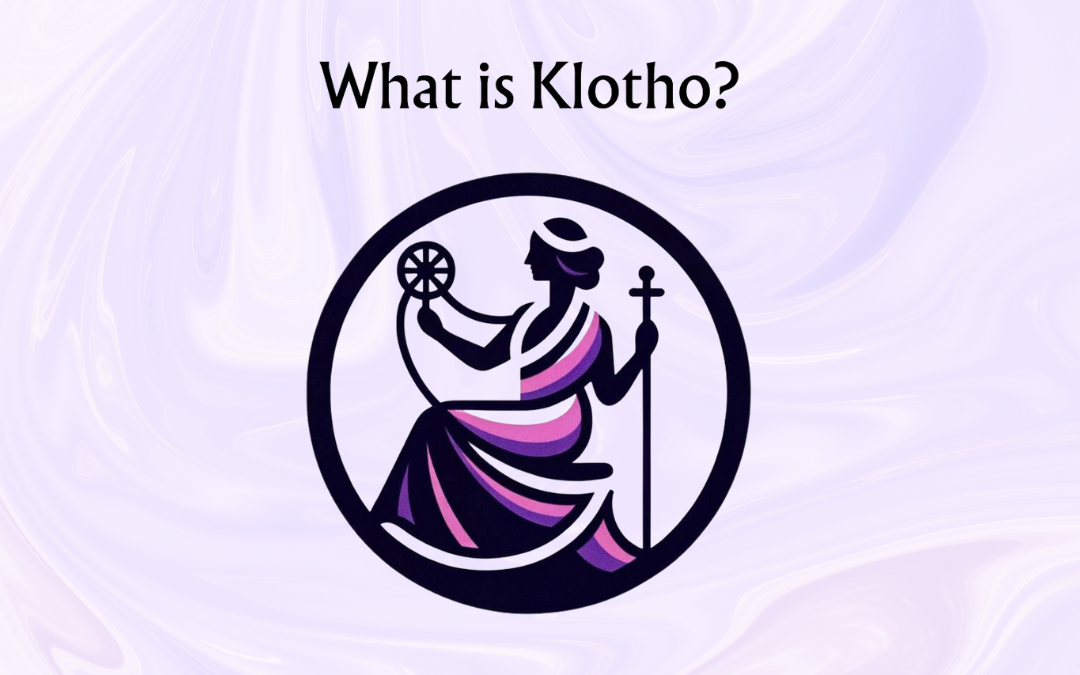In Greek mythology, Clotho was one of the three Fates who controlled the destiny of every human being. She spun the thread of life, determining the lifespan and fate of individuals. Her sisters, Lachesis and Atropos, measured and cut the thread, respectively. The name “Clotho” is derived from the Greek word “κλώθω,” meaning “to spin.” This reflects her crucial role in the weaving of human destiny.
In modern science, Klotho is also the name of a protein that plays a significant role in aging and health. Discovered in 1997 by Dr. Makoto Kuro-o and his team, the Klotho protein is involved in various biological processes, including the regulation of oxidative stress, calcium and phosphate metabolism, and insulin signaling. Higher levels of Klotho protein have been associated with enhanced cognitive function, reduced risk of age-related diseases, and increased lifespan.
Klotho protein has significant implications for brain health. Recent studies have shown that higher levels of Klotho are linked to better cognitive performance and a lower risk of neurodegenerative diseases like Alzheimer’s. A 2023 study demonstrated that injecting Klotho into aging monkeys improved their working memory by as much as 20%, with the effects lasting for two weeks or more. By promoting neural resilience and protecting against brain aging, Klotho may offer a promising avenue for enhancing cognitive function and longevity.
There are two forms of Klotho: membrane-bound and free-flowing. Membrane-bound Klotho functions as a co-receptor for fibroblast growth factors, playing a critical role in various cellular processes. Free-flowing Klotho acts as a hormone, influencing multiple organ systems. Genetic variants in the Klotho gene can affect the levels and activity of this protein, thereby impacting an individual’s aging process and susceptibility to age-related diseases.
Researchers continue to explore the therapeutic potential of Klotho, aiming to leverage its protective effects on the brain and other organs to develop treatments for age-related conditions. By understanding and harnessing the power of Klotho, we can spin a better future for cognitive wellness and overall health.
We are excited to announce the launch of WellMind p-Tau217, a pioneering blood test designed to detect Alzheimer’s disease early. This innovative test represents a significant advancement in diagnosing and managing this challenging condition.
The WellMind p-Tau217 test offers a significant advantage in diagnosing Alzheimer’s disease, particularly in its early stages. The pathophysiological changes associated with amyloid pathology can begin up to 18 years before a clinical diagnosis. For cognitively impaired individuals, detecting amyloid pathology constitutes an Alzheimer’s diagnosis when combined with memory test scores and patient history. In cognitively normal individuals, it indicates a strong risk factor for future cognitive issues related to Alzheimer’s.
Order WellMind p-Tau217







